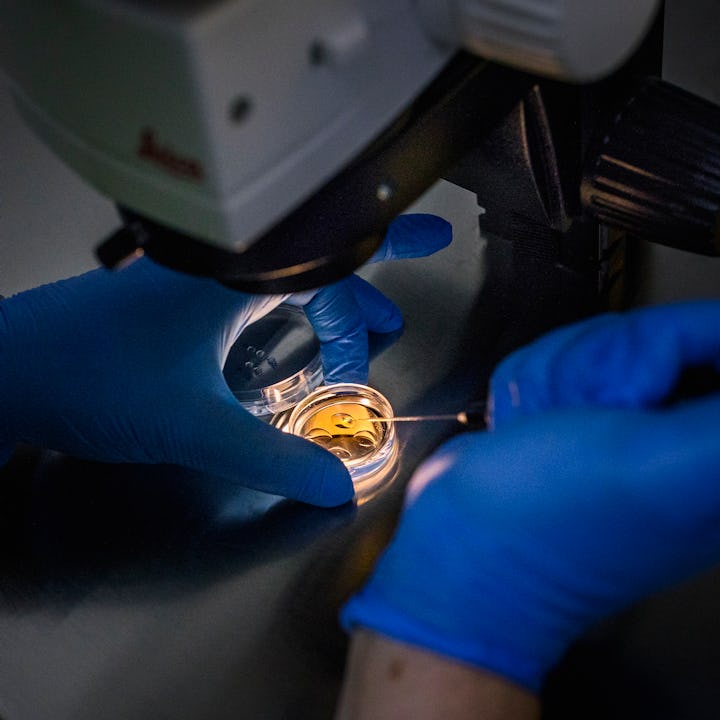Anti-Abortion Politicians Are Now Planning To Go After In Vitro Fertilization
Republican lawmakers stripped away ‘Roe v. Wade,’ and IVF is the latest target of antiabortion legislators.

In Vitro Fertilization (IVF) is an invasive but effective treatment that has allowed people experiencing fertility issues a chance to become pregnant and children. But if Republican legislators have anything to say about IVF, things are about to get a lot more difficult — and potentially more dangerous — for people hoping to turn to IVF for family planning.
Republican leaders like Georgia Governor Brian Kemp and New Hampshire Senate nominee Don Bolduc are just a few of the voices of the anti-abortion movement fighting to “do something” about IVF, namely, end the practice of disposing of unused embryos.
In leaked audio obtained by Atlanta Journal-Constitution, a supporter of Kemp’s asked if the governor would be in favor of a “statewide ban on the destruction of embryos,” to which Kemp reportedly said, “We barely got the heartbeat bill passed, one vote.” After being asked if he likes the idea, he said “Yeah,” after which a Kemp staffer said, This man’s proven his pro-life credentials,” and tells the supporter, “Yeah, we’ll talk about that [proposal].”
“It is a disgusting practice,” Bolduc said of fertility clinics disposing of embryos in audio obtained by Vanity Fair. “I don’t like that practice at all, and I think it’s a separate issue, and we’ve got to do something about it.”
By claiming personhood for the embryos, much like anti-abortion activists do, it appears that Republican legislators are primed to throw yet another wrench in our healthcare system and private medical decisions with laws that ban embryo destruction.
Depending on how the laws are written, this could lead to a whole lot of trouble for fertility clinics. For example, if an IVF storage facility loses power for a couple of hours, are they now responsible for the “deaths” of embryos that did not make it through a power lapse? Or if a physician performing IVF treatments on someone doesn’t take due to a human error, is that murder?
This also puts people who want to use IVF in a tricky spot should they have “extra” fertilized embryos after becoming pregnant or ultimately decide not to move forward with IVF. If new laws banning the destruction of these embryos are set into motion, people will likely have to pay private egg storage facilities to store these eggs indefinitely or donate the embryos to anti-abortion organizations to avoid a homicide conviction.
Or people considering IVF and their medical providers would also have to reconsider how many eggs to retrieve, fertilize, and transfer based on new laws and regulations — which could lower their chances of success.
Kemp has received donations from anti-abortion and anti-LBBTQ+ health organizations like Acadia Healthcare, amongst other chemical companies potentially linked to private egg storage clinics. Buldoc has been called out for not releasing his 2022 candidate financial disclosure, which would include any investments he’s made.
"If the legislature does view the unborn human life at its earliest moments as something worthy of protection over other interests, including the interest of patients and forming their families, then laws could move forward that are restrictive to in vitro fertilization," Judith Daar, a law professional at North Kentucky University who specializes in reproductive health, told The Washington Post after Roe v. Wade was overturned in June.
This is why voting at a state level is critical, y’all. Planned Parenthood has a list of reproductive rights candidates its endorsed, which can be a good starting point.